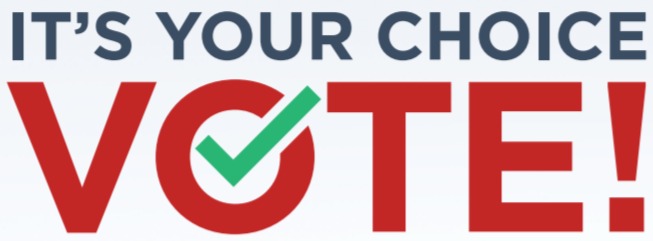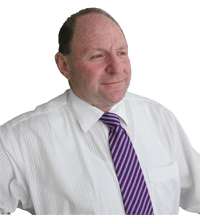 AUSTRALIAN wool growers won’t be able to read their peak body’s submission to the current WoolPoll review due to WoolProducers Australia’s fear of legal action.
AUSTRALIAN wool growers won’t be able to read their peak body’s submission to the current WoolPoll review due to WoolProducers Australia’s fear of legal action.
Meanwhile, another key grower group, the Australian Wool Growers Association, is also seeking an upheaval of the industry’s WoolPoll system, to align the levy that growers pay with an industry-agreed Australian Wool Innovation strategic plan and with Meat & Livestock’s five-yearly planning process.
WPA chief executive officer Jo Hall last month told Sheep Central that WPA wanted the industry’s WoolPoll process to be more independent of AWI and aligned with AWI’s and MLA’s strategic planning processes, but the WPA board has decided not to make its WoolPoll review submission public to “mitigate the risk of potential legal action”.
“This is less than ideal, but considering risk mitigation strategies for WoolProducers, it was determined that this was the way to progress.”
Ms Hall confirmed that WPA’s latest WoolPoll submission decision related to the possibility of legal action following a WPA submission to the 2018 EY Review of AWI performance and governance.
Sheep Central believes Ms Hall was referring to then AWI director Meredith Sheil reserving her rights to take legal action over WPA statements in its EY Review submission. Although not naming Dr Shiel in its EY review submission, WoolProducers argued that the manner in which AWI’s biennial director elections and the triennial vote in WoolPoll were conducted — despite being managed in accordance with relevant requirements and regulations — were heavily influenced and controlled by the AWI board, diminishing the ability of shareholders to exercise influence on the company.
“The current governance arrangements employed by AWI are flawed (as) demonstrated through the lack of transparency and accountability across a range of important activities that AWI engage in, from industry consultation through to levy expenditure decisions,” the 2018 WPA submission said.

AWGA director Robert Ingram
AWGA director Robert Ingram, who is an AWI Wool Industry Consultative Panel member and was a WoolPoll panel member in 2015 and 2018, said he found it interesting that WoolProducers’ submission is confidential, but this also indicated the need for change in the WoolPoll process.
“To me this reflects the way that WoolProducers has been treated in the past by AWI and others.”
WoolPoll and AWI strategic planning process if ‘back to front’
In its public submission to the current WoolPoll review, the Australian Wool Growers Association is seeking a process where the industry and AWI properly consult on a costed five-year strategic plan and then together recommend a levy rate to achieve the plan’s objectives.
AWI currently recommends every three years that growers pay a certain levy rate among five options, with help of a WoolPoll panel, while ignoring any preferred industry option in a process which AWGA regards as a failed and flawed process “subject to lack of transparency”. The research, development and marketing body then runs a separate strategic planning process which AWGA says meant growers do not know what they are voting for, only how much they will pay.
“Logically, the strategic plan should be developed and costed with genuine input, consultation and collaboration with producers and MLA,” Mr Ingram said.
“You’ve got to get the logic right, you don’t get a levy rate and then have a strategic plan, you have a strategic plan to know how much it is going to cost you, then develop a number of scenarios on supply and demand and where you think the (price) Eastern Market Indicator is going to be and say ‘these are the levy rates that we need’,” he said.
“If you do a proper inclusive consultative process and strategic plan, the levy rate drops out.”
Mr Ingram said this would mean there would not be a “f…… great fight” in the industry over levy options during the WoolPoll ballot.
“But you have to have an AWI board and executive that is willing sit down and work collaboratively, consultatively, inclusively, openly, transparently and accountably with their levy payers.
“That is not happening now.”
The former WoolPoll panel member said most of the 2018 panel members argued for the 1.5pc option to AWI, “but that wasn’t accepted.”
AWGA is also proposing that there be a standard five levy options from 0-2 percent and the industry with AWI needs to develop a strategic plan that can be funded by one of the options, unless the strategic planning process indicates a higher rate is required.
“And if you do it properly then you wouldn’t need WoolPoll,” Mr Ingram said.
Changes depend on a consultative transparent AWI board
The AWGA WoolPoll review submission has proposed that a petition of 250 levy payers should also be able call upon the government to assess any proposed five-year strategic plan, if the growers consider it is not truly transparent, accountable, or reflecting good governance and the needs of producers.
Upon reflection, Mr Ingram today said he believes two percent of AWI shareholders (about 400) would be a more representative sample for the petition recommendation.
AWGA has also proposed “for discussion” that because of the administrative cost of managing levy payers, that the minimum amount of levy paid in the past three years required to become an eligible levy payer be increased from $100 to $300, and that they automatically become a registered shareholder of AWI, rather than having to formally register.
“There are now 66,000 people who pay levies and at the 2018 WoolPoll 47,000 were eligible to vote, but 33,000 didn’t vote, and of those who voted, 47pc of them were AWI shareholders.”
Other AWGA recommendations include a fully preferential WoolPoll voting system, a downsizing of AWI’s media campaign promoting the WoolPoll vote and their preferred recommendation, “realistic” remuneration of WoolPoll panel members and levy payer input into AWI’s spending split between research and development versus marketing via the strategic planning process.
Mr Ingram said AWGA also wants the WoolPoll chair be independently appointed rather than by AWI, and funded through the Department of Agriculture.
“All this depends on having an AWI board that accepts that it needs to be consultative, collaborative, inclusive and transparent.
“If they are not going to do that then they will just continue the industry conflict.”
Click here to read AWGA’s WoolPoll Review submission.
All ‘non-confidential’ submissions published by 22 June
The Department of Agriculture, Water and the Environment said had received 36 submissions for the WoolPoll Review. The deadline for submissions was Friday, 12 June. There were 11 written submissions and 25 survey responses from a combination of individual levy payers and wool industry bodies.
The department intends to make submissions publicly available on the Have Your Say web page, except where authors have requested that their submission remain confidential. All non-confidential submissions will be published on the department’s Have Your Say website by Monday 22 June 2020.
The department expected to hold targeted meetings in June and July 2020. It will use these to follow up on key issues raised in submissions as required. It will also ask for feedback using phone and video due to the current circumstances.
The review’s findings and any recommendations are expected to be published in a final report in September 2020.

The participation rate of producers in these reviews — WoolPoll, NWD and now Have Your Say — is nothing short of appalling.
If there was a hole in an exclusion fence with AWI and AWEX on the other side wishing to discuss the repairs, you would turn up.
In these matters, you may wonder if there is any point. How can we expect to have a profitable business without input? Giving your thoughts on these matters for our paid representatives to conduct business is required. Without your input, the powers to be will carry on as they please.
Great article Terry. After 15 years of wool politics involvement, its clear that the AWI levy model is broken. It is unlikely to be repaired in economic terms, owing to the difficulties of how one measures commercial success with a body that is continually paid, regardless of its performance. Maybe its time for wool growers to allow the free market to take over; where commercial forces will provide products and services that are valuable in real terms.
There are several matters for concern in this process, starting with WPA’s condition that its submission should not be disclosed to its members. If there is some matter, that in its view may raise a risk of legal liability, it should be handled by other means. Members are entitled to know what is being submitted in their names. If there is a hidden agenda or ulterior purpose underlying this move that should not be concealed. One might well suspect that whatever it is may not be shared by all WPA members.
On another matter, and without going into the nuts and bolts of some AWI strategic plan, it is irrelevant whether the levy should precede the plan or vice versa. There are no absolutes in this business, and as we have seen recently, the best plans of mice and men can be substantially disrupted by what some call a novus actus interveniens; in this case, the COVID-19 pandemic. It would be best to cut out all the fuss and agree that the R&D levy should be set at 1 percent and leave it at that. I think that AWI has reached a stage of maturity now where we can rely on their judgement, as advised, to do the best thing for all. I haven’t caught up with all developments, though the ‘all’ might now include meat producers. Most of us are both anyway. The important consideration is the well-being of our sheep. If they are not well, they won’t be profitable.